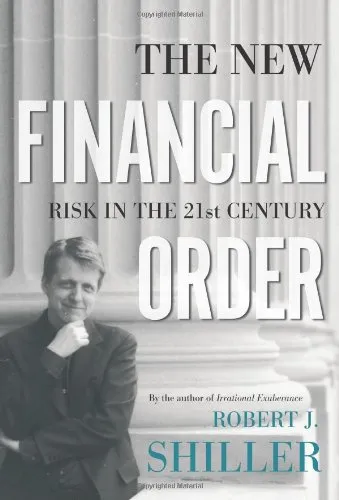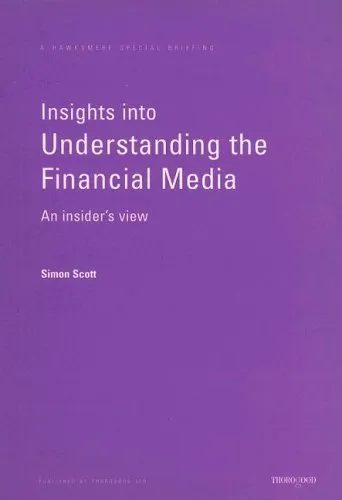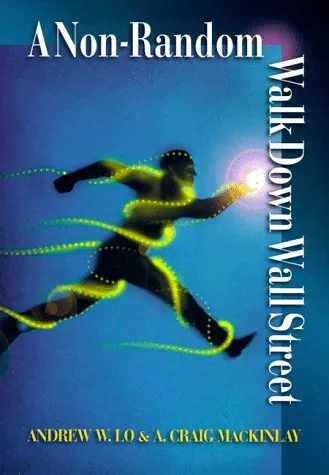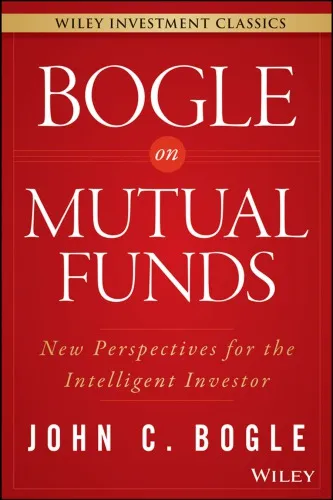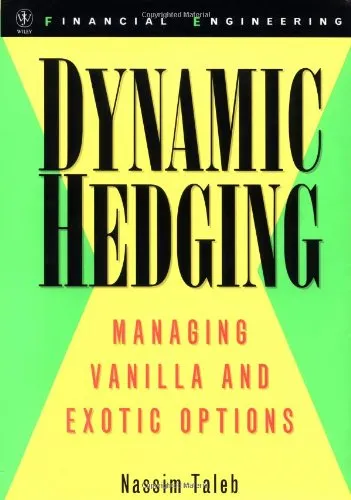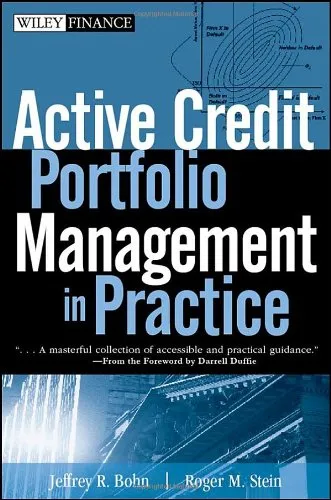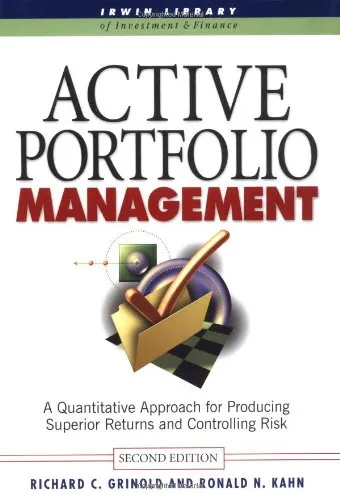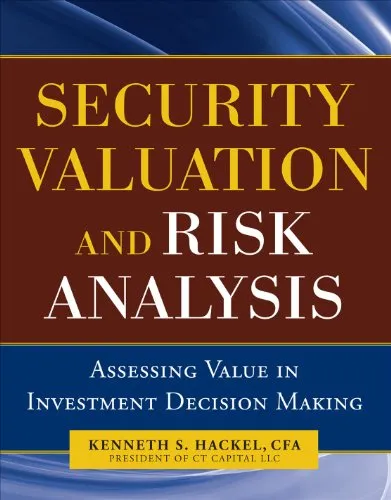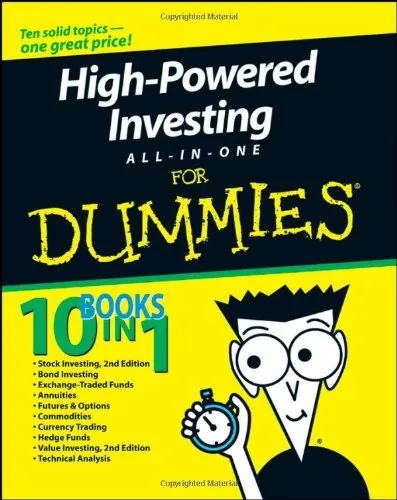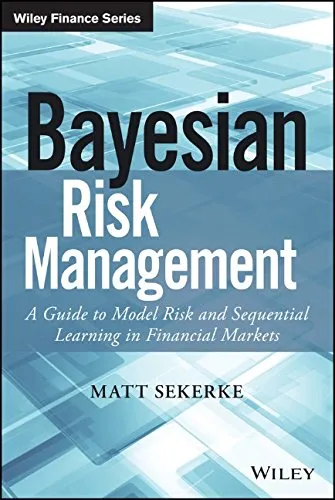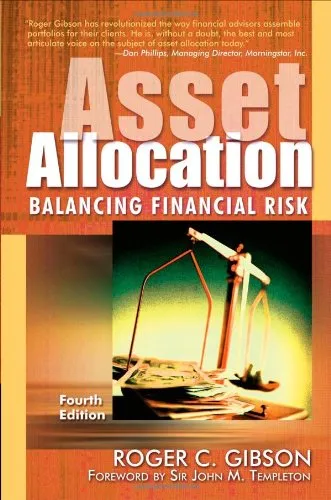The New Financial Order: Risk in the 21st Century
4.0
بر اساس نظر کاربران

شما میتونید سوالاتتون در باره کتاب رو از هوش مصنوعیش بعد از ورود بپرسید
هر دانلود یا پرسش از هوش مصنوعی 2 امتیاز لازم دارد، برای بدست آوردن امتیاز رایگان، به صفحه ی راهنمای امتیازات سر بزنید و یک سری کار ارزشمند انجام بدینکتاب های مرتبط:
خلاصهای جامع از کتاب «The New Financial Order: Risk in the 21st Century»
کتاب «The New Financial Order: Risk in the 21st Century» اثر رابرت جی. شیلر، به بررسی مفهوم ریسک در اقتصاد قرن بیست و یکم میپردازد و تلاش میکند راهحلهایی نوین برای مدیریت و کاهش ریسک ارائه دهد. این اثر به تحلیل تغییرات ساختاری اقتصادی، اجتماعی و تکنولوژیکی که جوامع مدرن با آن مواجهاند، میپردازد و ایدههای جدیدی برای سازگاری با این تغییرات معرفی میکند.
خلاصه تفصیلی کتاب
از نظر شیلر، ریسک همیشه جزء جداییناپذیر زندگی اقتصادی بشر بوده است. با این حال، پیشرفتهای فنآوری و جهانیشدن اقتصاد، پیچیدگی و عدم اطمینان بیشتری به این محیط افزوده است. او بر این باور است که ما نیازمند «نظم جدید مالی» هستیم که بتواند بهصورت کارآمدتری از عهده چالشهای قرن جدید برآید. در این کتاب، او به معرفی ابزارهای مالی جدید مانند Insurance و Derivatives میپردازد که میتوانند به کمک مدیریت بهتر ریسک بیایند.
این کتاب همچنین بر مزایای همکاری جهانی و اشتراک اطلاعات برای ایجاد محیطهای اقتصادی امنتر و پایدارتر تاکید میکند. شیلر نقش دولتها و نهادهای بینالمللی را در ایجاد سیاستهای اقتصادی هوشمندانهتر بررسی میکند و فناوری و دادههای بزرگ را بهعنوان ابزاری برای تحلیل دقیقتر ریسک معرفی میکند.
نکات کلیدی
- اهمیت درک و مدیریت ریسک در اقتصاد جهانی متغیر.
- معرفی ابزارهای نوین مالی مانند Risk Mitigation Tools و استفاده از تکنولوژی برای تحلیل ریسک.
- نقش دولتها و نهادهای بینالمللی در ایجاد سیاستهای اقتصادی پایدار.
- تاکید بر همکاری جهانی برای مقابله با چالشهای اقتصادی و اجتماعی معاصر.
جملات معروف از کتاب
"ریسک را میتوان نه به عنوان دشمن باشد، بلکه به عنوان فرصتی برای ایجاد نوآوری و پیشرفت در نظر گرفت."
"در جهانی که بهسرعت در حال تغییر است، عدم پیشبینی پذیری همچنان باقی است. بهترین فرصت ما برای مقابله با چالشهای پیشرو، سازگاری با ابزارها و روشهای جدید مدیریت ریسک است."
چرا این کتاب مهم است
کتاب «The New Financial Order: Risk in the 21st Century» برای هر کدام از خوانندگانی که به دنبال درک بهتر از چالشهای اقتصادی و اجتماعی حاضر در قرن بیست و یکم هستند، ضروری است. شیلر با نگاهی ژرف به دنیای مالی، بینشهای جدید و راهحلهای نوآورانهای برای مدیریت بهتر ریسک ارائه میدهد. این کتاب برای دولتمردان، سیاستگذاران و متخصصین مالی که به دنبال ایجاد یک فضای اقتصادی پایدار و مطمئناند، مرجعی ارزشمند است.
با ارائه استراتژیهای مختلف برای کاهش ریسک، شیلر به طور کلی بر اهمیت همکاری جهانی و استفاده هوشمندانه از تکنولوژی تاکید میکند، چیزی که میتواند به طور قابل توجهی ساختار اقتصادی آینده را بهبود بخشد.
Introduction to 'The New Financial Order: Risk in the 21st Century'
Welcome to an insightful exploration of financial innovation and the management of economic risk by renowned economist Robert J. Shiller. In 'The New Financial Order: Risk in the 21st Century', Shiller presents a transformative approach to understanding and addressing the economic uncertainties that challenge individuals and societies alike. This introduction provides a synopsis of the book’s core ideas, key takeaways, some notable quotes, and the significance of its proposals in the context of our rapidly evolving financial landscape.
Detailed Summary of the Book
Shiller’s 'The New Financial Order' delves deep into the complexities of managing risk in a globalized economy. The book envisions a future where financial innovation has progressed to a point where risks that once seemed insurmountable can be effectively managed. Shiller argues for bold new ideas that leverage risk management to enhance global prosperity and reduce economic dislocation.
At the heart of this ambitious work are six fundamental proposals aimed at improving the capacity of global institutions to handle risk. These include developments in insurance, information technology, and behavioural economics alongside policy reforms that advocate for more sophisticated global financial instruments. Shiller makes a compelling case for what could be possible if society commits to reimagining its economic welfare systems and takes advantage of the latest technological innovations.
By drawing on historical examples and drawing parallels with present-day economic challenges, Shiller stitches together a comprehensive narrative that traces the evolution of risk management and projects future directions. He envisions advancements such as macro-markets, which could allow for the trading of income-related financial claims, thus providing individuals and businesses far greater control over their economic destinies.
Key Takeaways
- The importance of broadening the availability and efficiency of insurance against various risks, including income and economic upheavals.
- The role of financial innovation in adapting to changes in the global economic landscape, thus minimizing adverse outcomes.
- Incorporating behavioural economics into financial models to better understand how emotional and cognitive biases affect economic decision-making.
- The potential for macro-markets to transform personal risk management and economic security.
- The necessity of international cooperation to establish and manage these new financial systems effectively.
Famous Quotes from the Book
"Risk management is too important to be left to risk managers."
"Financial innovation, like technological innovation, shows its most fruitful results only after an incubation period to develop a supporting infrastructure."
"If we do not take advantage of opportunities for improving our economic risk management structure, then future generations may well look back on us as having been shortsighted."
Why This Book Matters
At a time when economic uncertainties and systemic risks are increasingly part of the global narrative, 'The New Financial Order: Risk in the 21st Century' offers a refreshing perspective on how to tackle these challenges head-on. Robert J. Shiller's visionary proposals not only illuminate pathways towards a more resilient economic system but also emphasize the need for proactive engagement with the future of financial risk management.
This book matters because it challenges policymakers, economists, and financial professionals alike to rethink conventional approaches to risk. With its robust discussion on the integration of technology and its call for a collaborative, future-forward perspective, Shiller’s work remains critically relevant.
As our world continues to grapple with economic volatility, understanding and incorporating these concepts could lead to significant advancements in achieving global financial stability and prosperity. Therefore, 'The New Financial Order' is not merely a reflection on the present but a strategic blueprint for what could be possible in our shared economic future.
دانلود رایگان مستقیم
شما میتونید سوالاتتون در باره کتاب رو از هوش مصنوعیش بعد از ورود بپرسید
دسترسی به کتابها از طریق پلتفرمهای قانونی و کتابخانههای عمومی نه تنها از حقوق نویسندگان و ناشران حمایت میکند، بلکه به پایداری فرهنگ کتابخوانی نیز کمک میرساند. پیش از دانلود، لحظهای به بررسی این گزینهها فکر کنید.
این کتاب رو در پلتفرم های دیگه ببینید
WorldCat به شما کمک میکنه تا کتاب ها رو در کتابخانه های سراسر دنیا پیدا کنید
امتیازها، نظرات تخصصی و صحبت ها درباره کتاب را در Goodreads ببینید
کتابهای کمیاب یا دست دوم را در AbeBooks پیدا کنید و بخرید
1344
بازدید4.0
امتیاز0
نظر98%
رضایتنظرات:
4.0
بر اساس 0 نظر کاربران
Questions & Answers
Ask questions about this book or help others by answering
No questions yet. Be the first to ask!
